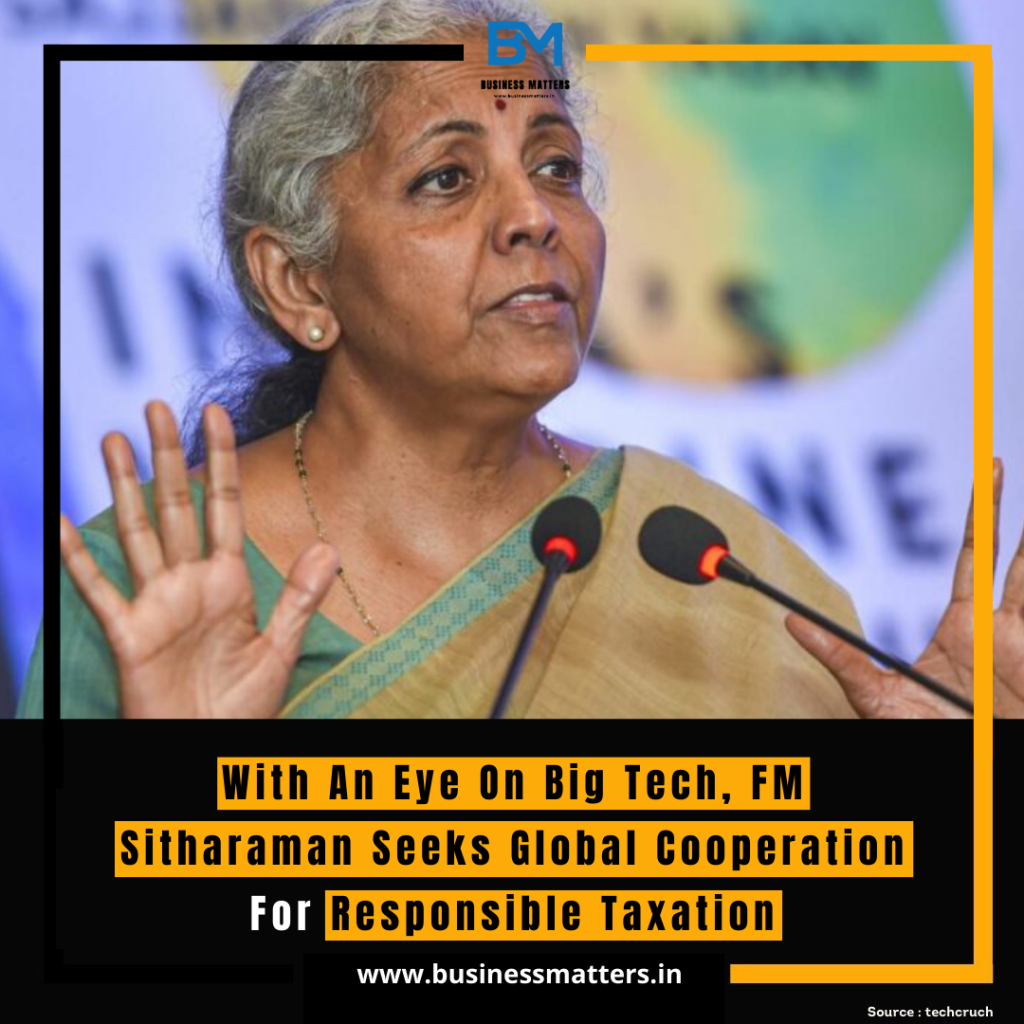
Title: With An Eye On Big Tech, FM Sitharaman Seeks Global Cooperation For Responsible Taxation
In an era defined by rapid technological advancements and the rise of global giants in the tech industry, the issue of taxation has taken center stage on the global economic agenda. Finance Minister Nirmala Sitharaman, from India, has emerged as a prominent advocate for responsible taxation in the face of Big Tech’s growing influence. In her pursuit of a fair and equitable tax framework, she is calling for increased global cooperation to address the challenges posed by these digital behemoths.
The rise of Big Tech companies, including tech giants like Apple, Amazon, Facebook, and Google, has transformed the global economic landscape. These companies operate across borders, generating vast revenues and profits, often with a limited physical presence in the countries where they do business. This has raised serious questions about their tax contributions, leading to growing concerns about tax avoidance and evasion.
FM Sitharaman’s call for global cooperation on responsible taxation is a response to these challenges. She recognizes that a coordinated effort among nations is essential to ensure that these tech giants pay their fair share of taxes and contribute to the societies where they operate.
One of the key issues in the taxation of Big Tech is the concept of “digital presence.” Traditional tax rules are designed for brick-and-mortar businesses with physical locations, making it challenging to tax digital companies appropriately. Sitharaman has been advocating for a more robust and comprehensive definition of digital presence, one that reflects the economic reality of the digital age.
To advance this cause, FM Sitharaman is actively engaging with international organizations and her counterparts in various countries. She is championing the need for a global consensus on digital taxation, which would establish a fair and standardized framework for taxing digital services and products. Such a framework could help prevent tax avoidance strategies employed by multinational tech companies and ensure that tax revenues are distributed fairly among countries.
The Organization for Economic Co-operation and Development (OECD) has been leading efforts to develop a global solution for digital taxation, known as the “Two-Pillar” approach. This approach aims to address the challenges posed by the digital economy by reallocating taxing rights and establishing a minimum corporate tax rate. Sitharaman has expressed support for these efforts and India’s commitment to finding a mutually agreeable solution.
Additionally, FM Sitharaman is pushing for greater transparency in corporate taxation. She believes that increased disclosure and reporting requirements for multinational corporations can help shed light on their tax practices. This transparency can serve as a powerful tool for holding companies accountable and discouraging tax evasion.
Sitharaman’s advocacy for responsible taxation is not limited to the international stage. She has also taken steps domestically to ensure that Big Tech pays its fair share of taxes in India. In the 2021-22 budget, India introduced a new provision requiring non-resident technology companies to pay a 2% equalization levy on revenue generated from digital services offered to Indian users. This move was aimed at bridging the gap between the digital economy’s growth and its tax contributions.
However, the Finance Minister has made it clear that these measures are not intended to be punitive but rather to create a level playing field for all businesses, both domestic and foreign. She recognizes the importance of a healthy and competitive business environment, but one that is based on fairness and equity.
In conclusion, Finance Minister Nirmala Sitharaman’s call for global cooperation on responsible taxation in the era of Big Tech is both timely and necessary. The digital economy presents unique challenges that require innovative solutions, and Sitharaman is at the forefront of efforts to address these challenges. By advocating for a fair and standardized global tax framework, increased transparency, and responsible taxation practices, she is working towards a more equitable future where tech giants contribute their fair share to the societies they operate in.

